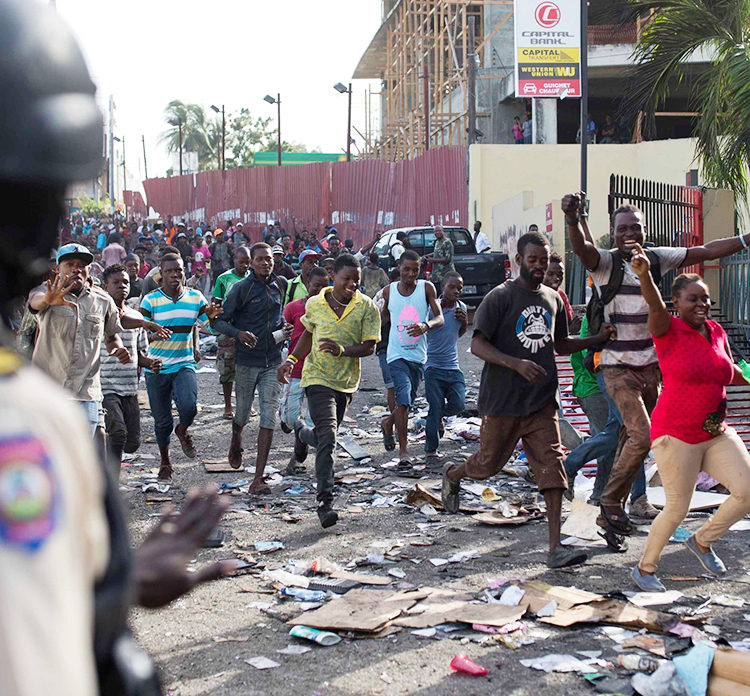Haiti’s Prime Minister Jack Guy Lafontant resigned July 14 after a two-day general strike and a week of protests sparked by the government’s announcement of sharp price hikes for fuel. Demonstrators marched, barricaded roads, looted stores and burned cars and two police stations in Port-au-Prince — the country’s capital — in the northern city of Cap-Haitien and elsewhere.
The government announced July 6 that prices of gasoline, diesel, and kerosene would go up 38, 47, and 51 percent, respectively. The move would have boosted public transportation costs as well. In an attempt to quell the uprising, Lafontant the following day said the price hikes would be “temporarily suspended,” but the announcement failed to halt the protests.
Many demonstrators chanted “Nou bouke” in Creole, “We are fed up!”
The increases come from the elimination of long-standing fuel subsidies. The move was one of the conditions imposed on the Haitian government by the International Monetary Fund in exchange for promises of access to $96 million in loans and grants. The IMF claimed removing the subsidies would provide the government with more funding for social services. This in a country whose rulers are renowned for their corruption! The Washington-based IMF sought to justify the measure by saying the richest 20 percent benefited the most from the subsidies, but the hikes were too much to bear for the poorest Haitians.
The IMF is still pressing for the price hikes to be imposed — through a series of gradual increases.
The government sought to blame the protests not on the decades of imperialist plunder that has resulted in 59 percent of Haitian toilers living in poverty, along with a massive lack of jobs, housing, infrastructure and being ravaged by a high cost of living, but “on others trying to lead the population astray.”
Haiti is one of the world’s poorest countries. Half the population is malnourished. On top of capitalist exploitation, workers and farmers there have borne the brunt of a series of deadly earthquakes and hurricanes.
“It’s not just a question of changing the prime minister, because day by day, the people are still suffering from more misery, unemployment, insecurity, hunger,” Fleurette Pierre, one of the demonstrators, told Agence France-Presse.


